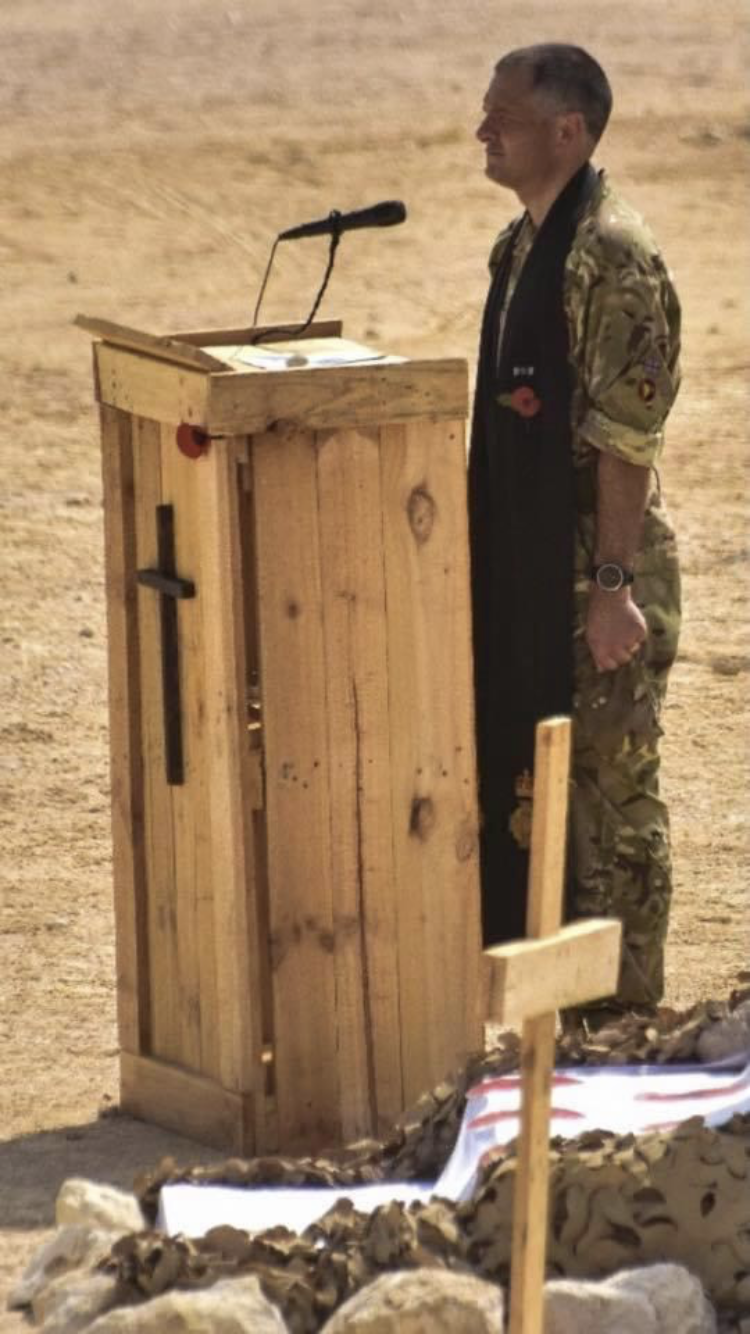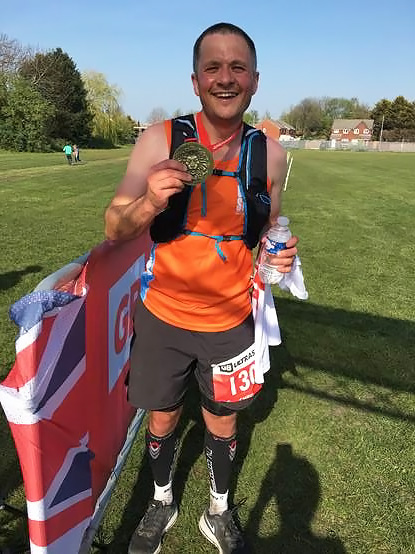What Remembrance means to me
What Remembrance means to me
Chris Kinch, formerly an Army Chaplain and now a Lead Chaplain in the NHS, shares his experiences of serving, how it changed him and why he supports Combat Stress
“I came to faith as a Christian in my late teens, and soon after felt a strong and persistent call to become a priest. A key influence was a priest in my parish who also served as an Army Chaplain - after spending a day with him and later completing a summer placement with Army Chaplains in Germany during theological college, I knew this was the path I was being called to follow.

The most difficult – and most meaningful – period of my ministry was my deployment on Op HERRICK 17a as Chaplain to the Role 3 hospital in Afghanistan. It was harrowing, traumatic, and life-changing, but also an enormous privilege to serve alongside such dedicated and remarkable people. I can’t share much detail due to operational sensitivity, and because parts of it are still hard to talk about, but it shaped me profoundly.
Remembrance Day has a deep personal significance for me. I remember all those who died in conflict, not just from the World Wars but in more recent operations too. I particularly think of those who passed through the hospital in Afghanistan – people I commended to God – and others I’ve served alongside who died through illness or other causes. Two officers who were close personal friends are never far from my thoughts.
During deployments, Remembrance is marked much the same way as back home. I’ve led services both overseas and on pre-deployment exercises. One that stands out was in Afghanistan – Remembrance took on a whole new meaning there. My faith sustained me throughout that time. It wasn’t about finding answers to suffering, but about knowing that even in the darkest places, God wasn’t absent. I saw that in the compassion of hospital staff and in conversations with those around me. Sometimes, the only constants were saying my daily office or celebrating Mass. They felt different – more vital. One moment I’ll never forget was standing with a soldier in the emergency department waiting for casualties. He wasn’t religious, but quietly said the words of a familiar prayer,"God, I may be busy this day. But even if I forget you, please don’t forget me.” That stayed with me.
Since leaving Army Chaplaincy last year and being received into full communion with the Roman Catholic Church, I now serve as a Lead Chaplain in the NHS, supporting mental health and learning disability services. This year, I’ll lead a Remembrance service at one of our hospitals – very different, but no less important.
After experiencing his own mental health issues, Chris has undertaken numerous running challenges to fundraise for Combat Stress. Transitioning to civilian life can also bring its own challenges. That’s why organisations like Combat Stress remain vital.

After returning from Afghanistan, I faced mental health challenges myself and was diagnosed with PTSD. EMDR therapy through the NHS helped me recover. During that time, I also started running – initially just to get out of the house. It changed my life. I’ve since completed several running challenges for Combat Stress. Having received help, I wanted to give something back and support others. There’s far more awareness and less stigma around mental health in today’s military, but older veterans sometimes struggle to access support.
"Transitioning to civilian life can also bring its own challenges. That’s why organisations like Combat Stress remain vital.”
